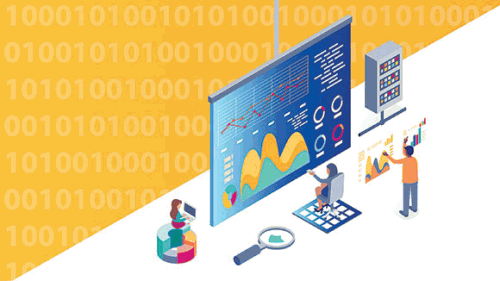
The Next-Generation Security Operations Centre (SOC) brings bleeding-edge managed cybersecurity solutions within reach of companies of all sizes, including smaller businesses with limited resources. Introduced at a virtual round table, the Next-Generation SOC gives companies access to the highest calibre managed security services in a consumption-based structure.
“Companies are seeking drastic measures to become more cost-efficient in a severely constrained economy without compromising their security. The launch of the Next-Generation SOC significantly lowers the cost of cybersecurity while allowing companies to tap into the very best skills, tools and services, which were previously only available to companies with substantial capital budgets. With our Next-Generation SOC, we are doing ‘business as unusual’; there are no upfront setup costs and companies only pay for what they use,” says Charl Ueckermann, CEO at AVeS Cyber Security.
The latest version of the Next-Generation SOC is a fully managed platform for monitoring, managing and proactively maintaining cybersecurity environments. Giving companies access to higher levels of productivity efficiency than before, the Next-Generation SOC integrates predictive, machine learning-enabled cybersecurity tools that are aligned with international best practices. And, upskilling of IT staff and continuous upgrading of systems can be maintained without any additional costs.

Actionable intelligence
The Next-Generation SOC gives companies access to actionable intelligence with comprehensive visibility of security-type logs, without sharing confidential customer information. The Next-Generation SOC is built on several cutting-edge technologies to monitor companies’ cyber environments, integrating with almost any application and system. The SOC will proactively monitor critical firewall event logs, firewalls’ uptime, endpoints’ security, critical server system logs, email security and global threat feeds on behalf of subscribing clients. These logs are ingested into the SOC toolsets and a highly-specialised team of security experts oversee and respond to the security alerts generated by the system.
“You have to eat, sleep and breathe cybersecurity to understand it, proactively manage it, as well as pre-empt and mitigate the risks. Offered as a fully managed service, the Next-Generation SOC eliminates the need for onsite SOC infrastructure and in-house cybersecurity analysts, both of which can be prohibitively expensive for small- and medium-sized companies to recruit and manage. Our Next-Generation SOC model is based on three standards of best practice; COBIT 2019, the NIST Cybersecurity Framework and the SANS Cyber Incident Management Framework. So it is not simply about remote security monitoring and alerts, but also active incident response. Our team of experienced security specialists working alongside leading technologies underpinning the Next-Generation SOC are a powerful combination,” says Ueckermann.
Optimised costs
Furthermore, capital expenses that were previously required to gain access to SOC infrastructure are now eliminated. SOC tools, such as log collectors, are installed on a client’s network in the areas where log ingestion is needed. Secure site-to-site VPN will also be configured for remote dashboards and alerts into the Next-Generation SOC.
Pricing for services is based on the amount of data (logs) consumed per day. Companies get around the clock monitoring, threat analyses, monthly risk profile reports, cyber incident response and a dedicated dashboard. Although software-as-a-service and the outsourcing of cybersecurity are not new, Ueckermann says the concept of consumption-based managed security services is emerging throughout Africa.
“Fixed licences and service level agreements can be a burden because companies pay for the same amount of services, software and capacity that they do not need every month. Upfront annual costs and fixed agreements can also place the outsourcing of cyber services out of grasp for smaller businesses, especially for those with long business cycles, project-driven organisations or cash-strapped businesses. It is time for a change. With a consumption-based structure, companies of all shapes and sizes have the opportunity to outsource cyber risk cost-effectively,” concludes Ueckermann.
For more information, contact AVeS Cyber Security, +27 86 100 2837, [email protected], www.aves.co.za
| Tel: | +27 11 475 2407 |
| Email: | [email protected] |
| www: | www.aves.co.za |
| Articles: | More information and articles about AVeS Cyber Security |
© Technews Publishing (Pty) Ltd. | All Rights Reserved.